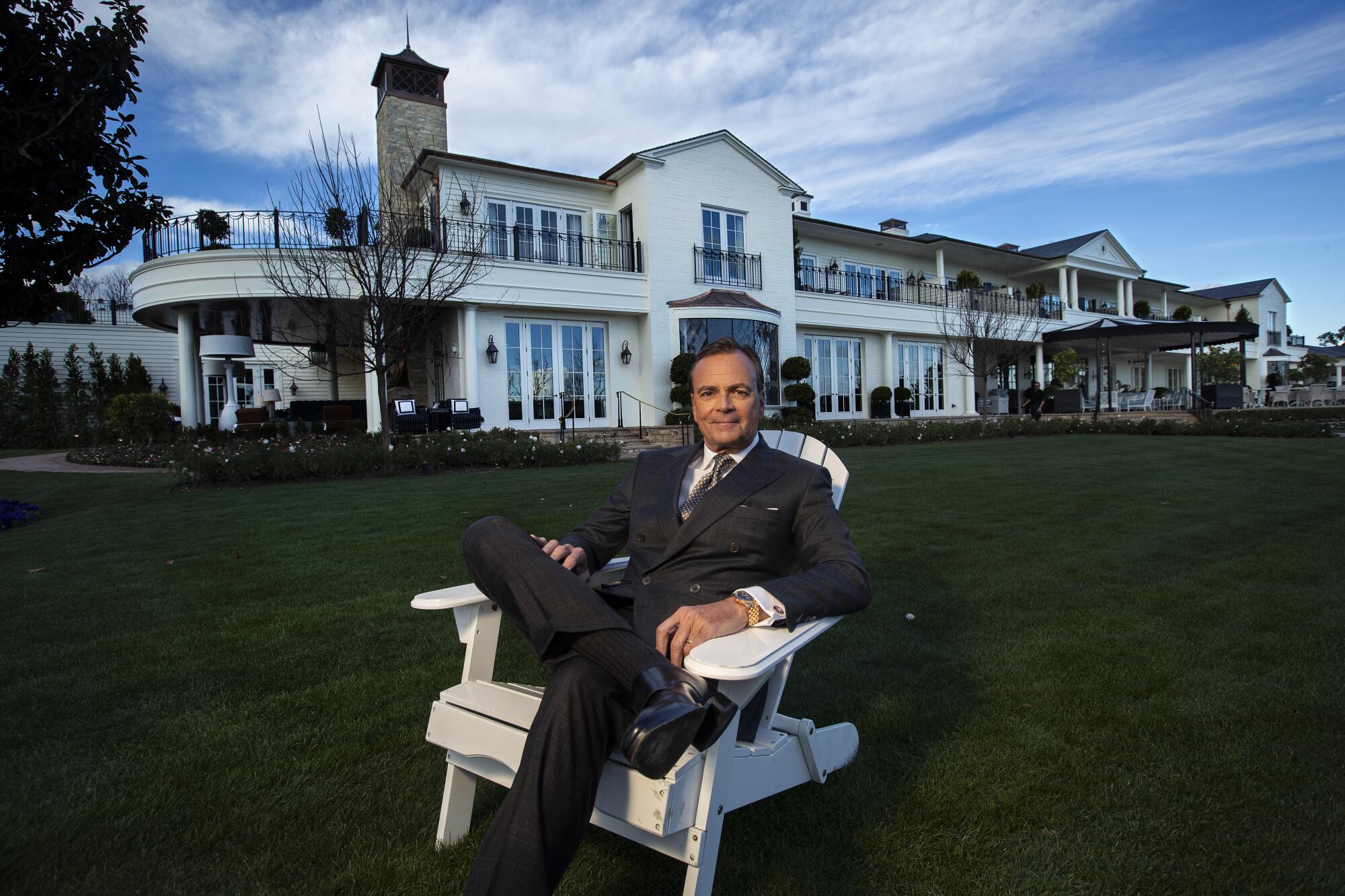At the request of billionaire developer Rick Caruso, Councilmember Traci Park has introduced a motion to expand Mayor Karen Bass’s proposal to exempt Pacific Palisades homeowners from Measure ULA, the voter-approved “mansion tax” that funds affordable housing and homelessness prevention. The motion, co-sponsored by Councilmember Tim McOsker, directs city departments to explore suspending or rebating ULA taxes for property owners rebuilding after the January Palisades Fire.
Caruso and his political group Steadfast LA reportedly pitched the idea to Bass earlier this fall, arguing that ULA’s 4 to 5.5 percent transfer tax discourages the sale of burned or damaged luxury properties. Bass’s October 9 letter to the City Council and the Director of Finance took up that argument, urging a one-time, three-year exemption for homeowners who owned and occupied their Palisades properties at the time of the fire.
Park’s motion goes even further. It asks the City Attorney and Office of Finance to determine whether the city can legally suspend the tax altogether and to draft an ordinance within 30 days if feasible. If not, it calls for a “rebate” program. Park has presented the move as compassion for disaster victims. But housing advocates and policy experts say that framing is deeply misleading.
Bass’s letter describes the exemption as relief for natural disaster survivors, implying that the measure would help displaced residents rebuild. In reality, the policy would apply to any sale of luxury properties in the affected area, regardless of financial hardship. Wealthy developers, speculators, and absentee owners could benefit as much or more than actual residents forced from their homes. Nothing in the proposed language limits eligibility to primary residences, low-income households, or those with documented losses.
The contrast with Park’s record could not be sharper. In February, she voted against an emergency motion to protect tenants economically impacted by the Palisades Fire, legislation that would have paused rent hikes and prohibited evictions for renters who lost income or took in displaced families. Park argued that there was insufficient data showing tenants needed assistance and insisted on strict income verification before any aid was granted. When Councilmember Eunisses Hernandez introduced an amending motion to narrow the measure by limiting eligibility only to renters who could directly prove hardship or displacement from the fires, it still failed, with Park voting no. In other words, Park demanded the most stringent means testing possible for working-class renters but now supports a luxury-class tax exemption that includes no income limits, no hardship requirements, and no definition of “fire victim.”
It is also ironic that during the February debate, Park pushed an amendment to use Measure ULA funds to help tenants affected by the fires, despite the legal risk of diverting those funds for purposes other than housing production and homelessness prevention. Now Park is taking the opposite approach, seeking to reduce ULA revenue altogether by exempting wealthy property owners in the Palisades from paying into it.
Critics argue that what is being sold as disaster relief is, in fact, a massive tax loophole for the city’s richest homeowners. The Palisades is one of the wealthiest neighborhoods in Los Angeles, and many properties there exceed the $5 million threshold that triggers the ULA tax. Exempting those sales would redirect public funds meant for renters and working-class families toward high-end real estate transactions. “Every dollar taken out of ULA is a dollar not spent on affordable housing,” one housing organizer said. “It’s alarming to see City Hall treat this as a recovery measure when it’s really a tax break for the ultra-wealthy.”
Since its passage in 2022, Measure ULA has raised more than $830 million for affordable housing and homelessness prevention. Opponents say carving out exceptions for luxury zones undermines voter intent and sets a dangerous precedent for future disasters or market downturns. Once one neighborhood secures an exemption, others will demand the same, weakening the city’s most significant source of housing equity funding.
Advocates also point out that the city has already moved aggressively to speed recovery in the Palisades. Bass has issued nine emergency orders and two executive directives to accelerate rebuilding. According to her own letter, more than 850 plans have been approved and 230 homes are already under construction. The claim that the mansion tax is holding up rebuilding simply does not match the record.
If City Hall wants to support those genuinely affected by the fire, housing advocates say, it has tools that do not require dismantling a voter-approved housing measure. Targeted rebuilding grants, low-interest loans, and permitting fee waivers could provide direct relief to residents who need it without opening a loophole that benefits investors and speculators. Bass’s exemption proposal and Park’s broader expansion are expected to face scrutiny in the Housing and Homelessness Committee.

